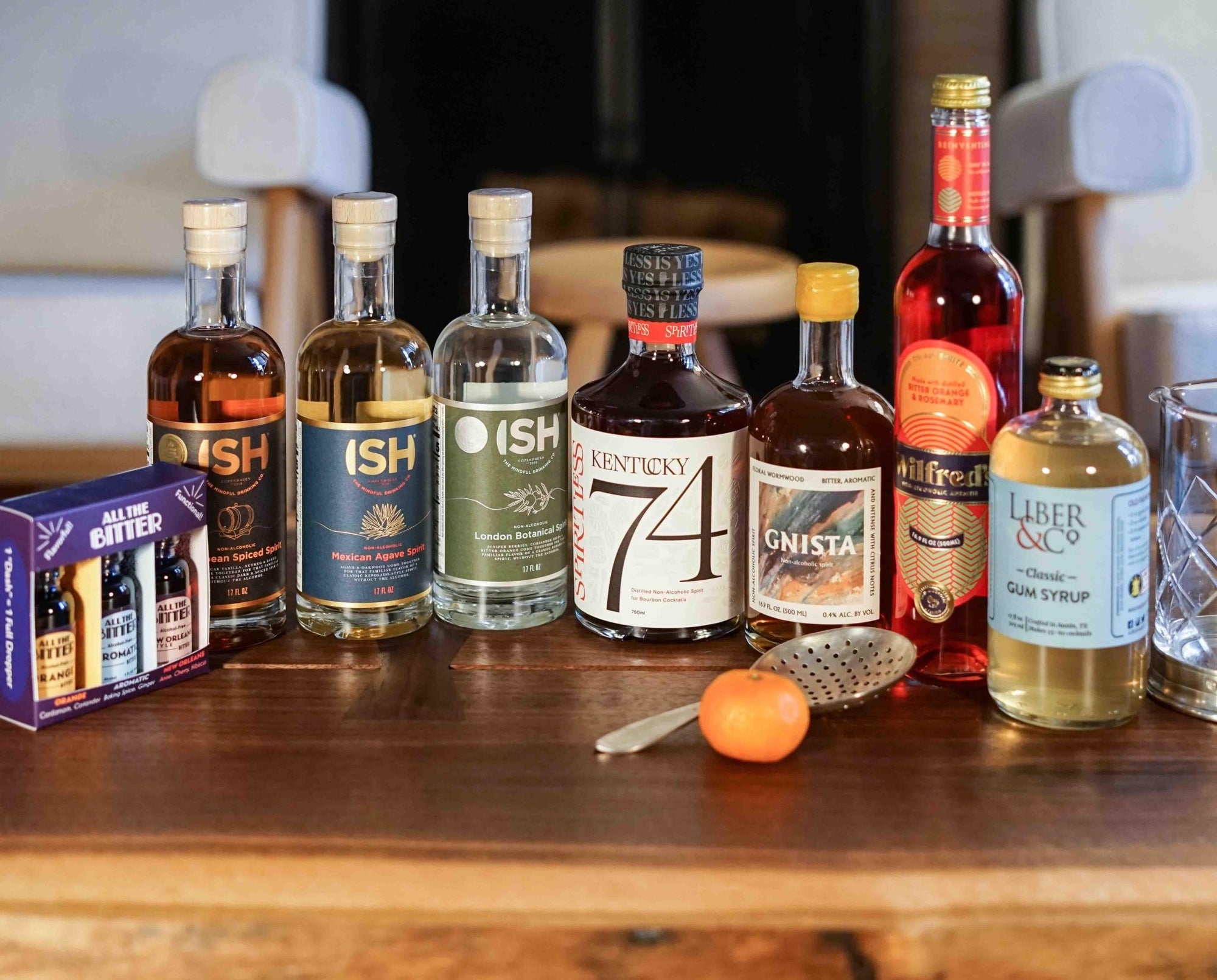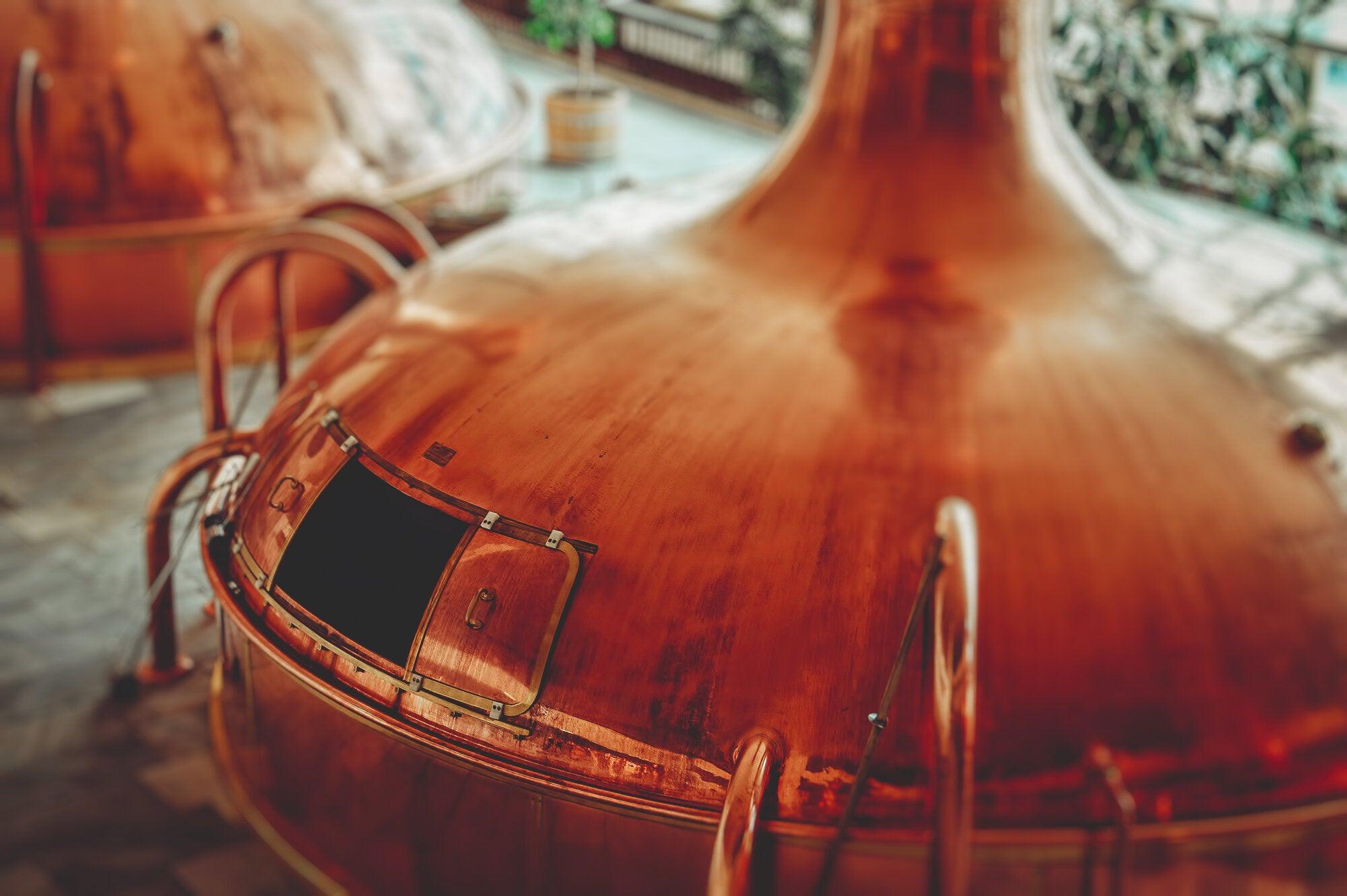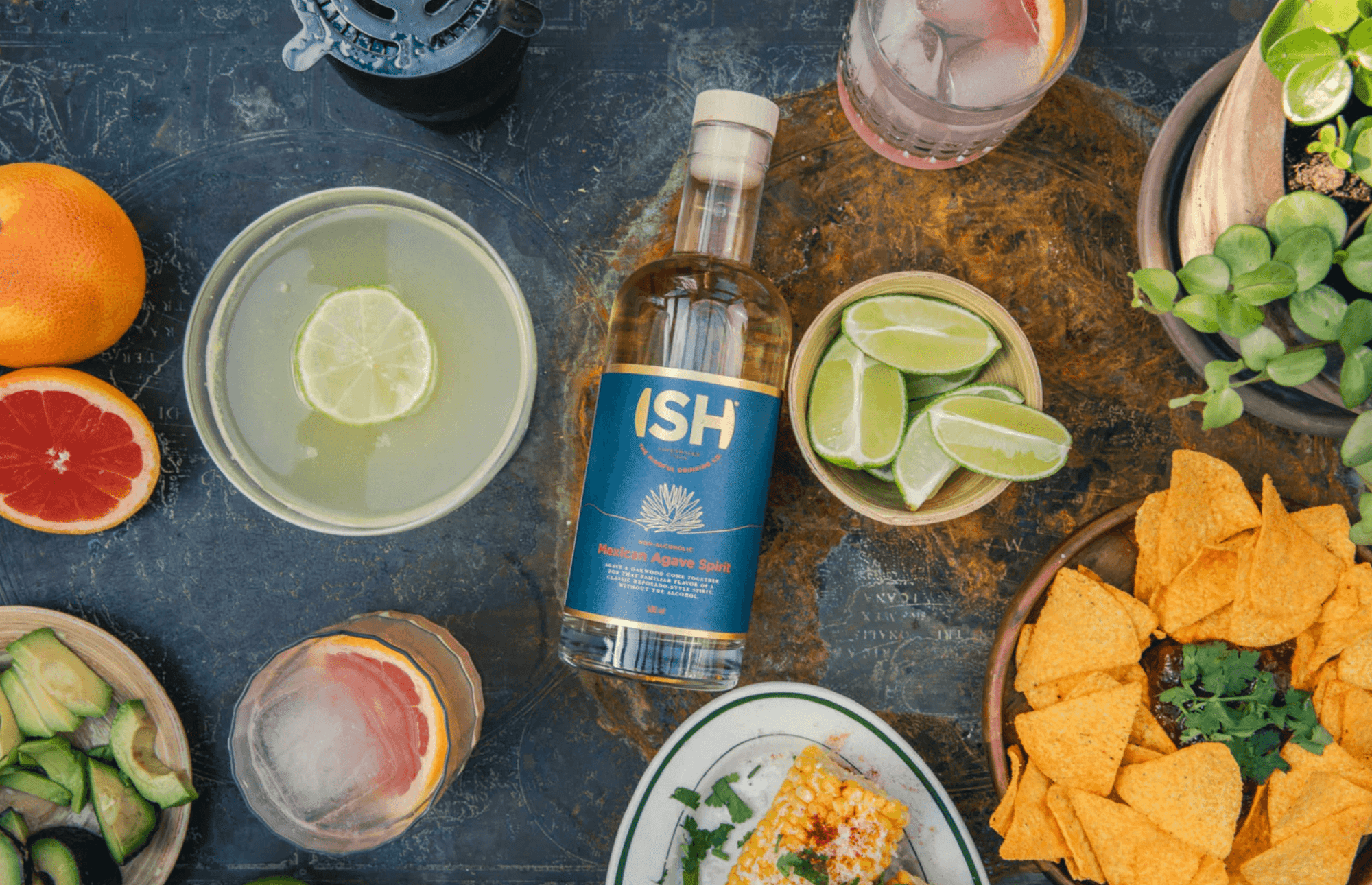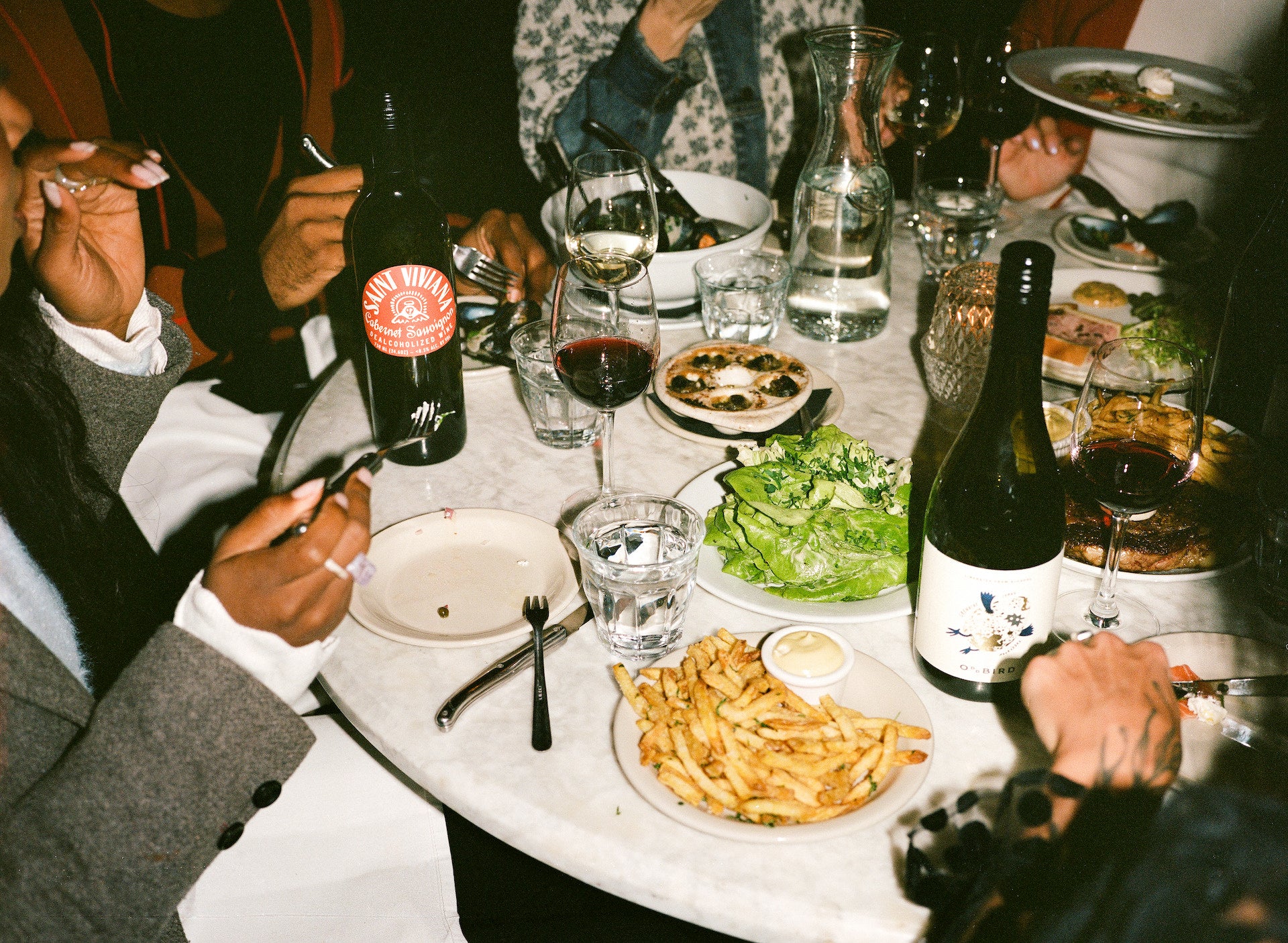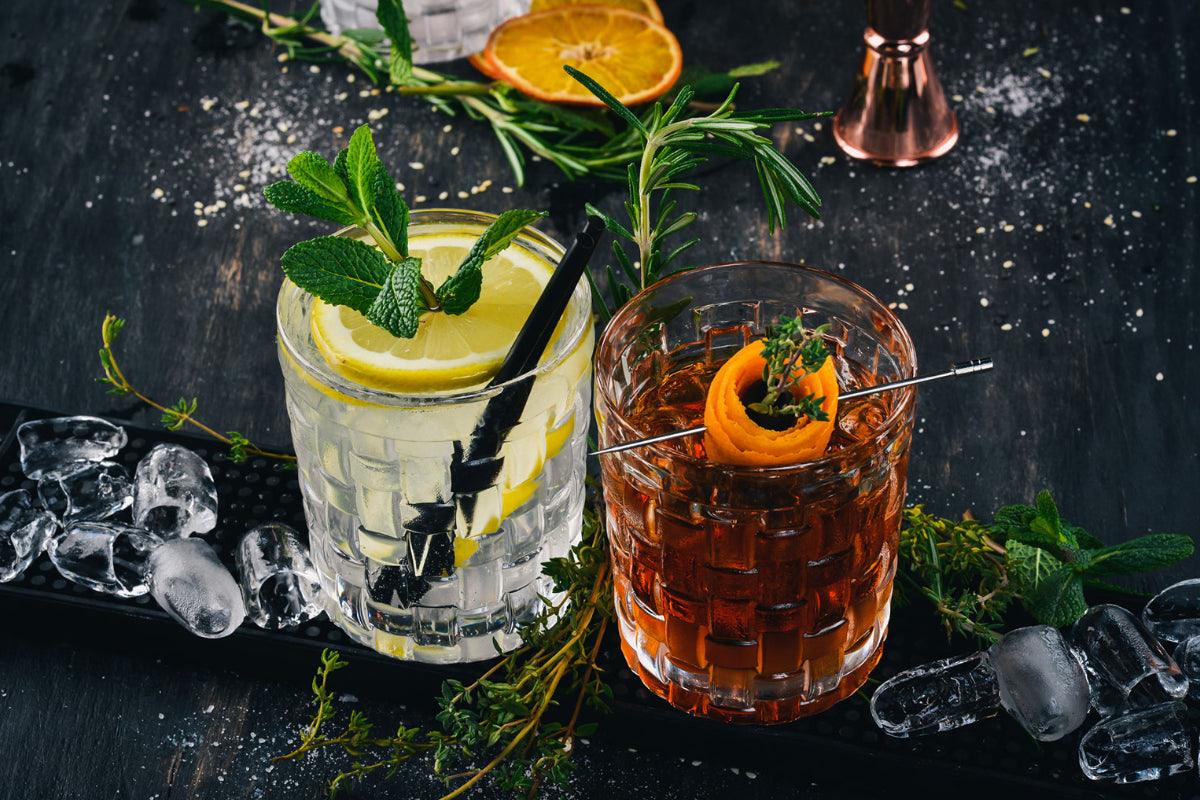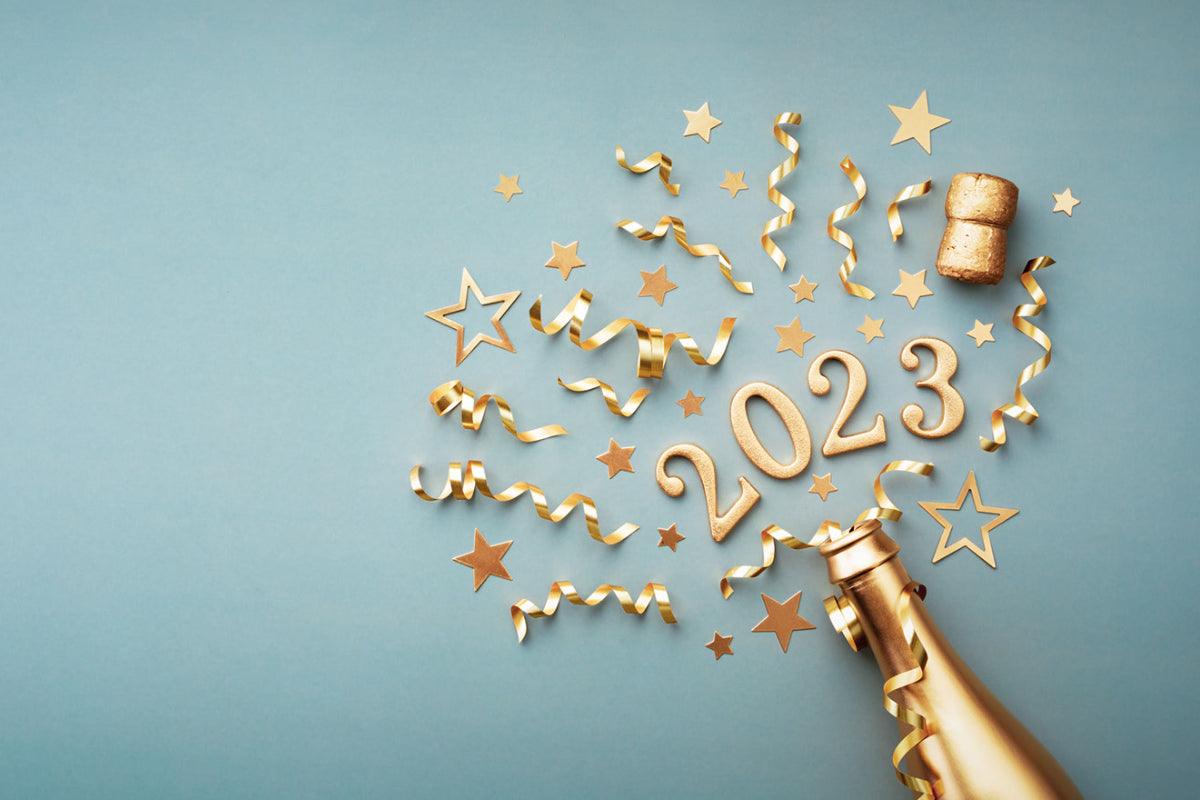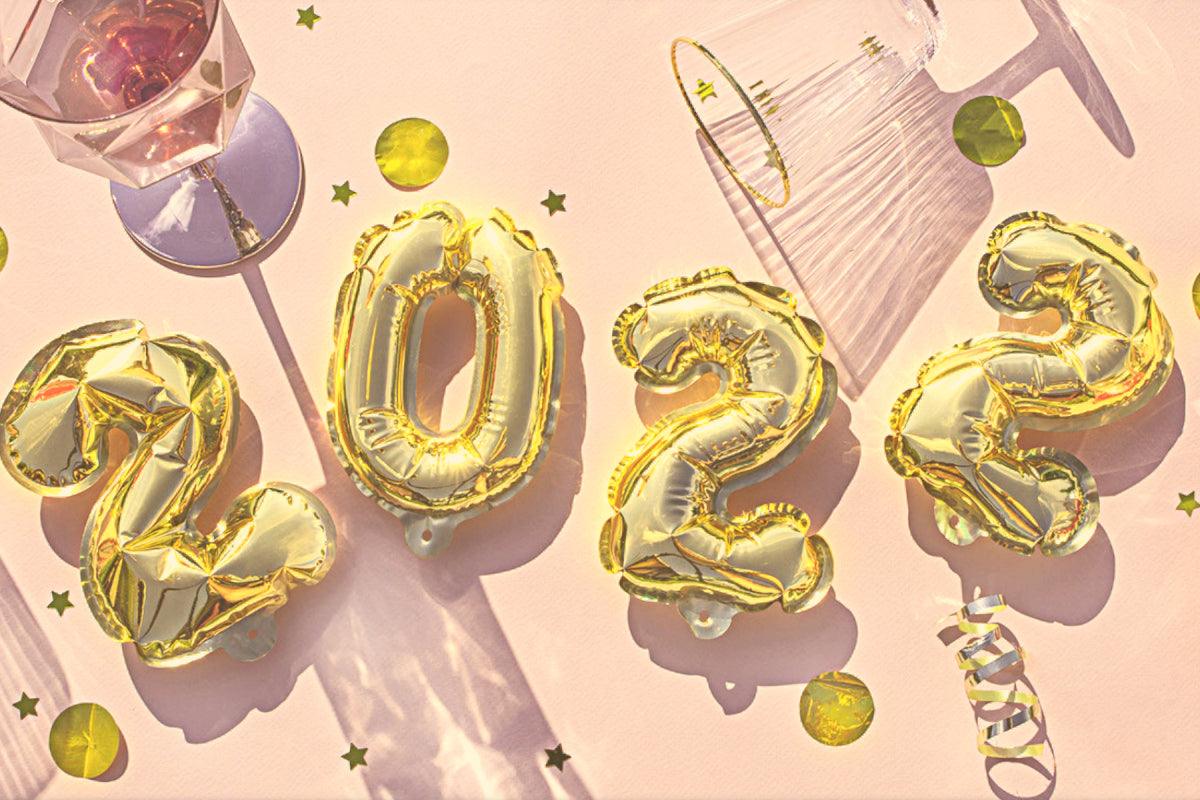Michelin awarded sommelier Miguel de Leon is the non-alc superhero we deserve
The wine director of Pinch Chinese on his collaboration with Proxies, crafting New York’s best non-alcoholic beverage menu, and his personal super power.
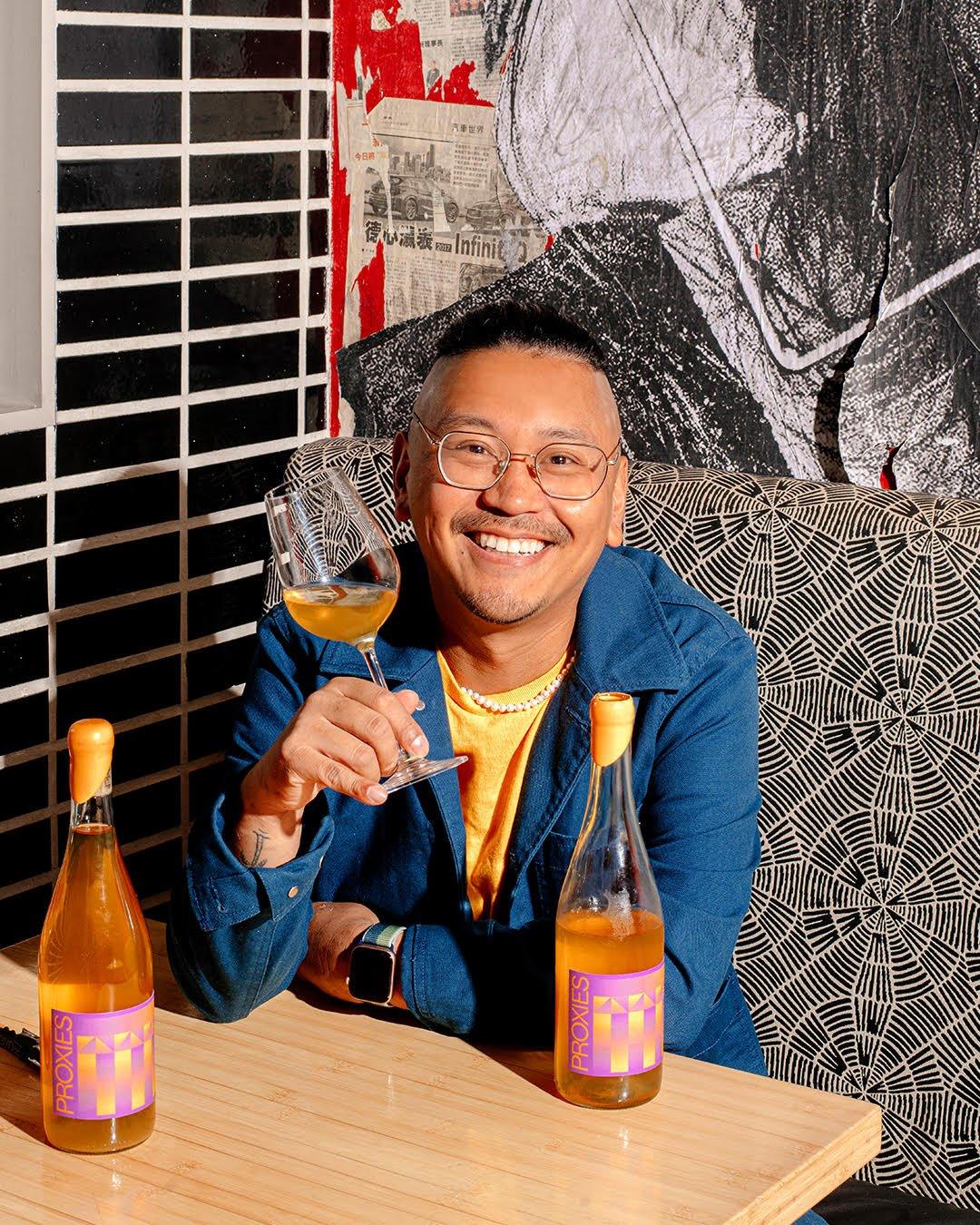
While studying for a double degree in linguistics and urban planning at UC Berkeley, he got his start at what he calls "a little local spot": chef Alice Waters's legendary farm-to-table restaurant, Chez Panisse. His first job was answering phones as a reservationist, before moving to the dining room as a server. He moved to New York after graduation, where a recommendation letter from Waters helped him land a spot at Thomas Keller's Per Se, performing the highly choreographed service of tasting-only menu dinners with as many as twenty courses.
From there, he moved to the recently opened, original location of Momofuku, eventually overseeing the beverage program in David Chang's rapidly expanding empire. While he was opening new Momofuku restaurants around the world (as far away as Sydney, Australia), he spent his free time attending classes and studying for certifications in wine and spirits. By 2011, Miguel was suffering from a serious case of burn out.
He was only 27-years-old.
"Everyone else's 20s in New York have really fun, interesting stories, and mine was 'I was at work'."
In 2011, he left Momofuku to slow down and figure out his future in the food and beverage industry. While taking a little time to recuperate, he stayed involved in hospitality as a freelancer, advising new fine dining restaurants in New York.
Having a little space to breathe while freelancing, Miguel had realized that wine was what he wanted to do, what he wanted to focus on. "2012 was a really big flashpoint year for me."
Freelancing led to a job as Wine Director at Casa Mono in 2012. That year, the Gramercy tapas restaurant would snag its first Michelin star.
A mission to give everyone a seat (and a glass) at the table
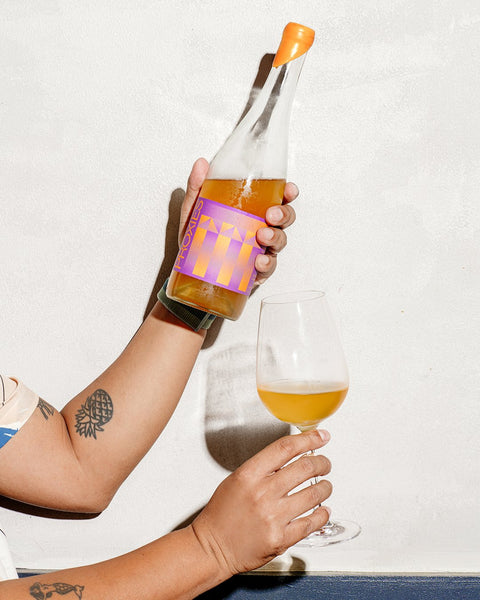
The next year, Miguel suddenly had a very important reason to expand his focus on wine to include non-alcoholic alternatives.
"I got married in 2013, and about the same time my husband was going through sobriety." In a bit of dramatic irony, he'd just figured out what he wanted to do with his life, and now he could no longer share it with the person with whom he planned to spend the rest of his life.
Rather than be disheartened, Miguel saw it as a challenge, and immediately started researching options that wouldn't exclude his husband. "That was the biggest impetus for me [to become interested in non-alc]. We used to go out three times, four times a week, and every time you ask for something that's non-alcoholic, it's a ginger beer, it's a lime rickey, it's something that looks like those two things, or it's a soda. It's orange juice with pineapple juice. It's fine," he says with a resigned sigh, "but can't we do better?"
Striving to make fine dining and wine more inclusive is the hallmark of Miguel's career as a sommelier. He advises the UC Davis Viniculture and Enology Program's seminar on Critical Wine Studies, and sits on the resource council of the Hue Society, an organization that promotes BIPOC professionals like himself in the wine industry.
Born in the Philippines, Miguel moved from Manila to Orange County, California at the age of 10. "We're always trained, especially in hospitality, and especially in finer dining, that you need to leave yourself at the door, but I can't leave the fact that I'm Brown at the door. That interaction is already different for [me] versus someone else who's going to be in the dining room. I can't leave that here. And I'm done apologizing for that."
In one of the more vulnerable personal anecdotes he recalls in "It's Time to Decolonize Wine," his essay on intersectional identity, colonization, and the wine industry, Miguel writes about white diners at the restaurant asking him to speak to a white server about the wine list that he, the Wine Director and a trained sommelier, curated. "In every other sommelier space, I've had to work three times as hard to be considered for the same position as someone else who is coming in with their foot in the door who is white."
That work has not gone unrecognized. In 2021, he was the first ever recipient of the Michelin Guide Sommelier Award in New York City, and in 2022 won the James Beard Foundation Media Award for Personal Essay - Long Form for "It's Time to Decolonize Wine" (even more impressive given that English is his third language). Imbibe Magazine and Wine Enthusiast named him to their short lists of the most important people working in the beverage industry.
Carly Rae Jepsen... on the wine list?
Miguel's wine program at Pinch Chinese demonstrates exactly why he deserves the accolades. He has smashed the long-standing, eurocentric idea among wine industry professionals that Asian cuisines are difficult, even wrong to pair with wine. "But that's coming from a French person who doesn't have an understanding about that culture. Wrong for who? Wrong for them, maybe, but not for me."
"This is the super power that I have- that you don't have- is another perspective."
As a result of his childhood in Manila, Miguel's reference library of tasting notes goes well beyond the traditional Western wine tasting grid. "Just because my reference book looks different doesn't mean it's not valid. Because yeah, I'll make you an espresso martini, but I'm going to put some pineapple juice in there and you're going to be like, 'What is that?!'"
"I don't need to reinvent the wheel, but let's just color it a little differently. I know how to fill in that filigree a little bit better, especially with flavor, because this place allows me to do that all the time," he says, crediting the freedom he has at Pinch to experiment.
"It's a lack of imagination to say 'I can't do that.' Why not? There's no retort to that question. Just because a book said that's what a pairing should look like? Should for who? Who are you pairing for? The country that most consumes wine is China. Not anywhere else. Go think about that. Maybe they have all the money, but guess what, they're also taking their culture with them. That's not French food!"
No one could accuse Miguel of a lack of imagination. He built his first wine list for Pinch from wines mapped along the Silk Road, the ancient trade route that linked Europe to China, demonstrating exactly how European wine and Chinese food could end up on the same table. After the first year, he decided to drop the regional theme. "Alright, I did the exercise," he says. The only restrictions on the list, now, are that the wine is natural, ethically made, and delicious.
Despite the expanded parameters, Pinch's wine list remains unique in a number of ways.
Most of the list is arranged not by region or varietal, but by characteristics like drinkability (a page of red wines are categorized as "NATTY LIGHT," "MIDSIZE," and "THICCCCCC") or discoverability ("WINE YOU DON'T SEE OFTEN" is followed by "WINE YOU DON'T SEE AT ALL"). A page of skin contact wines is divided into Beginner, Intermediate, Advanced, and Post-Doc sections, each sub-headed with a line from the chorus of Carly Rae Jepsen's pop smash "Call me Maybe." Where wines are divided by typicity or region on the list, Miguel still finds opportunities to categorize wines with humorous descriptions, such as "YOU SHOULDN'T JUDGE STILL ROSÉ BY COLOR, THESE ARE ALL DARK," "MORE LIKE SAUVIGNON BONKERS", "AMERICA, FUCK YEAH", and a section with a single Cabernet Sauvignon titled "A CAB."
One of the more unusual things about the wine list at Pinch is that there are permanent "programming spots" for an entire page of non-alcoholic options. Miguel says that every day, Pinch has customers who ask for non-alcoholic pairings that work as well with the food, have the same level of ceremony, and taste just as good as the wines. At first, he opted for fine teas, while leaning very heavily on the kitchen for syrups and shrubs, which were not ideal for pairing with food. "You can only drink so many shrubs before your palate is scuffed."
Because of what he calls "the sobriety trials at home" with his husband, he knew there had to be non-alc products out there that would be better suited to pairing with food. "I wanted something that drinks like wine but without us having to futz with it too much."
He found what he was looking for in Proxies, the wine alternative produced by Acid League and explicitly designed to pair with food.
"When Acid League started coming on to the market, I was all in about them. I got the first box of Acid League from Charlie [Friedman, Head of Proxies at Acid League] and the crew, and I was like, 'Mmmmm hmmm, OK. More like this.'"
Or, to borrow the bridge from "Call Me Maybe": "Before you came into my life, I missed you so bad."
At the time Acid League hadn't thought about scaling the production of Proxies for restaurants. Miguel told Charlie, "You let me know the minute- the minute!- that could become a reality, because I will always, always champion it here."
True to his word, you can now find three or four of Acid League's Proxies on the list at Pinch at any given time, served by the glass, the bottle, or in tasting flights. Unified Ferments Kombucha, a premium New York kombucha producer, is on draft. A rotating selection of non-alcoholic spirits, served neat, on the rocks, spritzed, or in a house cocktail are available, as well.
Miguel's super power in action
Tasting the recommended pairings of Proxies with dishes at Pinch reveals that he isn't just boasting when he calls his taste a super power. Not to diminish the tremendous amount of work he has put into his craft, but Miguel's sommelier training bolsters an innate talent no amount of studying could replicate. His palate is comparable to a great songwriter's ear.
As an example, he orders fish dumplings from the kitchen, and has the bartender pour a generous glug of Chardonnay-colored Proxies. This is Sauvage*, based on the juice of Sauvignon blanc grapes, green apples, and ingredients like foraged evergreen tips selected as representations of Canadian terroir.
The delicate white fish and fresh ginger of the dumplings are a far cry from the recommendations of meaty salmon, autumnal roasted squash, and tart goat cheese made by the producer.
He tilts the glass of Proxies to his nose, inhales, and smiles. "I love how, despite it not being in here, Sauvage* reminds me of fresh lychee and fresh rambutan. That's what it smells like," he says.
A bite of the fish dumplings with a sip of Sauvage* and any skepticism about the pairing evaporates. The combination is exponentially better than the sum of its parts. The linear acid of the Proxies makes the scallions in the dumplings and the chilies in the sauce effervescent, and the flavors of the creamy, white fish filling are no longer subtle but pop bright and distinct as sparks. The combination is a mind-bending and uniquely delicious kaleidoscope of flavors and textures.
*Given the rotating nature of Proxies production, we recommend Blanc Slate as a 2024 Proxies alternative to Sauvage.
A delicious alcohol-free collaboration
Given Miguel's talent for food pairings and enthusiasm for non-alc, when he was asked to collaborate with Acid League on his very own bottle of Proxies, he says his reply was an immediate yes. "Pfft! Yeah, that sounds like a really cool thing to be able to do!"
Called Vinta* after small boats sailed along the coasts of the Philippines, immediately identifiable by their brightly colored, rectangular sails. The bright orange liquid is a Proxies first: an analogue to the skin-contact, low intervention wines he brought to a wider audience as Wine Director at Casa Mono.
Miguel says, "The base of the idea is I want to honor where I come from, and where I came into wine, so it's literally a story in a bottle."
While developing Vinta*, Miguel had a list of notes and ingredients with which he and Acid League's blenders were experimenting. "There's a little bit of tamarind, a little bit of mango, pineapple, betel leaves- they're like halfway between tobacco and mint and they're lovely. I mean, to me that screams wine note, but if you don't know, you don't know," he says. "It's stuff I grew up with, the stuff that I wish was on tasting grids."
Though betel leaves sadly do not make it into Vinta* in the end, the resulting product fulfills the brief of being tropical but not cliched, and comfortingly nostalgic even if you didn't grow up in the Philippines. The nose is pure sunshine, yellow and orange citrus, with hints of fennel seed and vanilla at its freshest. On the palate, lush pineapple, peach, and orange (juice and marmalade), balance the more astringent acid of verjus and lemon, followed by the unmistakable aromatics and tannins of jasmine tea. Pandan leaf and bubble-gum-y Holy Basil amplify the nostalgia into an unusually long finish of soft orange and creamy vanilla that is beautifully balanced and not too sweet, but evokes the unmistakable flavor of creamsicles.
Like everything Miguel does, Vinta* is complex and meaningful, yes, but it's also fun.
"We don't call it NA here [at Pinch]," he says. "The word no? I don't like that on the menu. So I call it alcohol-free. Because it's AF, right? 'As fuck.' It's fun, it doesn't care, it doesn't give A F," he says, pronouncing the individual letters.
"I'm a linguistics person, right, so I'm all about language. If we can start developing the language of flavor this way, we can also think about things like it's not a mocktail. What are you mocking? Just call it a drink, call it a cocktail. Let's be real, a nice coffee with sugar and cream is a cocktail."
He also wants bars and restaurants to not only change how they talk about non-alcoholic drinks, but to put them, in print, on the menu or wine list. "[Customers] have to see it. If they don't see it, if you don't do it, people aren't going to think it exists. The fact that I can do a flight of Proxies on the menu? There's inherent power to that. I want people to understand that they can redefine what their relationship is with alcohol for themselves."
"My job as a sommelier is literally just to be someone else's enabler," he explains, "and whether that's through spirits, through wine, or through non-alcoholics, even better."
Nine years after his husband stopped drinking, he's encouraged by the rapid increase in non-alc options, while acknowledging that there is still quite a lot of work to do. "I'm happy to see that we're nowhere near what this looks like, yet, because we're very much in an experimental phase for everything [non-alcoholic]. But for what's coming out, and for the speed of what's being poured into it as a product category? It's very exciting for me."
*Given the rotating nature of Proxies production, we recommend experimenting with Red Clay as a 2024 Proxies alternative to Vinta. While the palates differ, Red Clay is equally complex with layers of dark fruit, tart verjus, and a bit of ginger spice.



